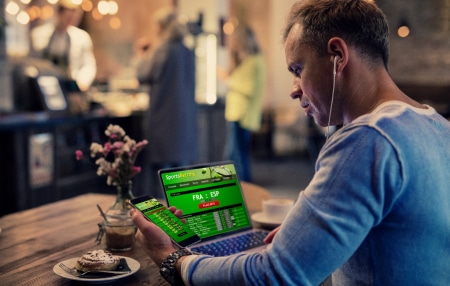
For many, gambling is a harmless hobby, but for others, the allure of this pastime can lead individuals down a path of financial hardship, resulting in accumulated debts. According to a 2022 study by Citizens Advice, 18% of people who regularly gambled online were in significant gambling debt. That equated to 3.3 million people.
This statistic has raised an interesting legal question in recent years – when significant debts arise from gambling, are these debts always enforceable under UK law? And connected to this, if they are, what are the potential legal ramifications you can face if you find yourself unable to pay your gambling debts?
In this guide, we explore the legal aspects surrounding gambling debts in the UK. This will include the issue of enforceability, as well as outlining to what extent a partner or spouse is legally liable for their other half’s gambling debts. Finally, we also provide our top tips for getting out of gambling debt.
Are gambling debts enforceable by law?
This is a bit of a grey area. In the UK, gambling debts are legally enforceable as long as the debts in question relate to ‘lawful gambling’. If your betting was done through a regulated bookmaker or casino – that’s an organisation that follows the regulations outlined in the Gambling Act 2005 or the National Lottery Act 1993 – your debts can be collected legally. You can find out more on the Gambling Commission website.
That being said, there are legal protections in place when it comes to unregulated gambling. If the person/organisation you’re laying a bet with is supplying you with credit, then any debts are not enforceable. This is because it’s against UK law for bookmakers to supply you with credit. According to the Consumer Credit Act 1974, this form of lending is illegal.
Similarly, regulated bookmakers in the UK should not allow you to deposit money into an online account from a credit card. Only debit cards or prepaid cards can typically be used. In theory at least, if your debt comes as a result of online gambling based on credit provided by the bookmaker OR money deposited from a credit card, the debt may not be enforceable.
However, if you decide to take out a loan or access another line of credit (not from the bookmaker) to pay for your gambling, the debt can be treated the same as any other and is therefore enforceable.
Can you be liable for a partner’s gambling debt?
Put simply, no. As discussed in our guide on debt responsibility, you’re only responsible for debt that’s in your own name. That is to say, if debt is in your partner/spouse’s name – be that gambling debt or any other form of debt – you’re not responsible for paying the money back.
Of course, this doesn’t mean a partner’s gambling debts cannot impact you at all. Your own financial situation could well be negatively impacted as a knock on effect of your partner’s gambling if they are moving money around in order to service gambling debts. This can be particularly problematic if you have any joint finances, such as a mortgage or joint bank account.
While you’re not liable for your partner’s gambling debts per se, if your partner is using money from the joint account to gamble, or is unable to pay their part of the mortgage payment as a result of their gambling debt, you can become indirectly impacted by your partner’s gambling habit. Additionally, if one partner acts as a guarantor for the other’s debts, they may become directly liable for any outstanding obligations.
For advice on how to help a family member or friend struggling with debt, check out our guide.
How to get out of gambling debt
The process of getting out of significant amounts of gambling debt can be a daunting task. However, as we discuss on our Gambling Debt Help & Advice page, if you follow the right steps, getting out of this form of debt is possible.
Before doing anything else, you will need to stop gambling. After all, if you are unable to stop gambling, you’re not going to be able to get yourself debt-free. If you believe you’ll struggle to stop gambling without help, be sure to seek professional support. For example, you can contact the National Gambling Helpline at 0808 8020 133 or visit them at National Gambling Helpline.
Once you’ve stopped gambling, we recommend starting your financial recovery by simply assessing the full extent of your gambling debt. This can be done by compiling a full list of all of your debts. If you have significant debts from other aspects of your life as well as gambling, these should be included too. Once you have done this, it’s time to put together a realistic budget for your life. This budget should prioritise essential life expenses such as food costs, rent and mortgage payments, council tax, utility bills and child maintenance costs. If, after you’ve put this budget together, you’re still unable to both service your debts and pay for your essentials, you may need to explore professional debt management options. These include discussing the possibility of debt consolidation or putting an informal debt management plan in place with your creditors.
If gambling debts are more significant, you may need to seek professional advice. When taking this advice, it may be suggested that a tailored Debt Management Plan (DMP) or an Individual Voluntary Arrangement (IVA) represent the most suitable methods of helping you get out of gambling debt. You can look up free debt advice by visiting MoneyHelper or get in touch with us to find out more.

